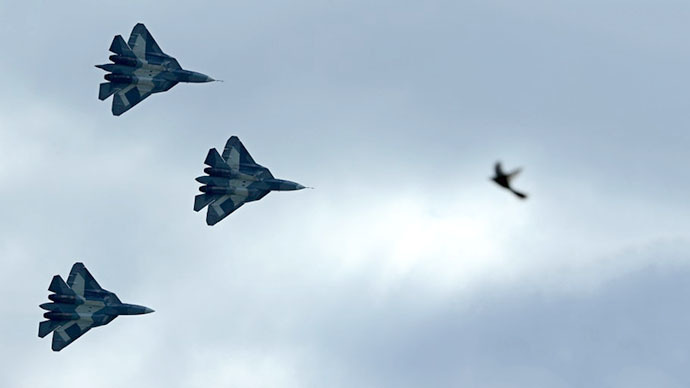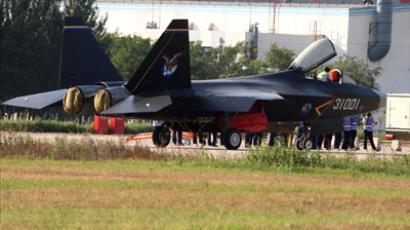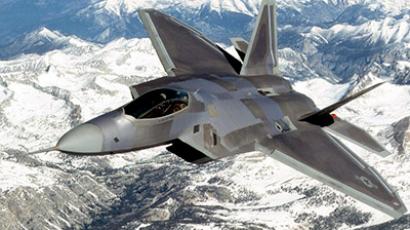MAKS headroom: Russia unveils plans for new anti-missile system, 5th-generation fighter jet

Russia is developing a fifth-generation unmanned fighter jet and a completely new missile defense system which can simultaneously engage several supersonic targets in space, it has been revealed at the MAKS-2013 airshow.
The fifth-generation unmanned aircraft, weighing in at around 20 tons, takes after the T-50 fighter jet, with most of its characteristics modeled after it, Mikhail Pogosyan, president of Russia’s united aircraft-building corporation, told RIA Novosti at the MAKS-2013 show in Zhukovsky, just outside Moscow, which displayed the latest in air combat technology.
“We are working in accordance with plans developed together with the Defense Ministry. At this stage this implies further preliminary testing. The current stage is largely based on the technological breakthroughs we have achieved in the framework of the ‘fifth generation’ program,” Pogosyan told the Russian ITAR-TASS agency, in reference to the upcoming drone.
With a fifth-generation PAK-FA heavy attack jet already developed and planned to enter service in 2016, Russian aviation is also looking to the future of air combat, conducting research and development for aircraft that can dominate airspace by the mid-21st century.
The news comes on the heels of a Thursday announcement by the
Russian aircraft construction corporation, which signed a $90
billion deal with the Defense Ministry. Under the contract, the
ministry will have its technology and equipment built and
serviced by Russia’s aircraft builders for the next three years,
Pogosyan said at the MAKS-2013 show.
National media reports that on top of the new deal, another $3 billion contract has come into effect, stipulating, aside from the servicing of equipment, that the Defense Ministry shall receive 65 new fighter jets by the end of 2013.
Another exciting development in the Russian high-tech weapons market is the possible 2017 launch of the promising S-500 anti-aircraft missile system. The Friday news comes courtesy of a top Ministry of Defense figure, speaking to ITAR-TASS.
“A promising anti-aircraft missile system S-500 is being designed now,” the source said. “The Armed Forces may have it in 2017.” The special feature of the formidable new lineup is the ability to lock on to and engage multiple targets in space, never allowing them to reach Russian airspace.
Moscow has been making attempting leaps in combat technology – especially missile defense – given the uneasy international climate it finds itself in currently. The plan for a better missile defense is a direct answer to the United States’ idea for a missile shield in Europe, which it says is for defensive purposes against unpredictable regimes such as Iran and North Korea. Russia is not feeling very secure with the proposed system to be so close to its territories.
Aside from the pursuit of fifth-generation technologies, Russia is also actively developing an unmanned sixth generation aircraft, said a former Air Force commander. Unlike NATO allies who will use American F-35 5Gs, self-sufficiency is an absolute must for Russia, said the commander, so 6G evolution is inevitable.
With regard to missile defense, Russia is currently using the
S-400 Triumph, which has a range of 400 kilometers. Russian
President Vladimir Putin says the Armed Forces are to acquire 28
systems from the current lineup over the next 10 years.














